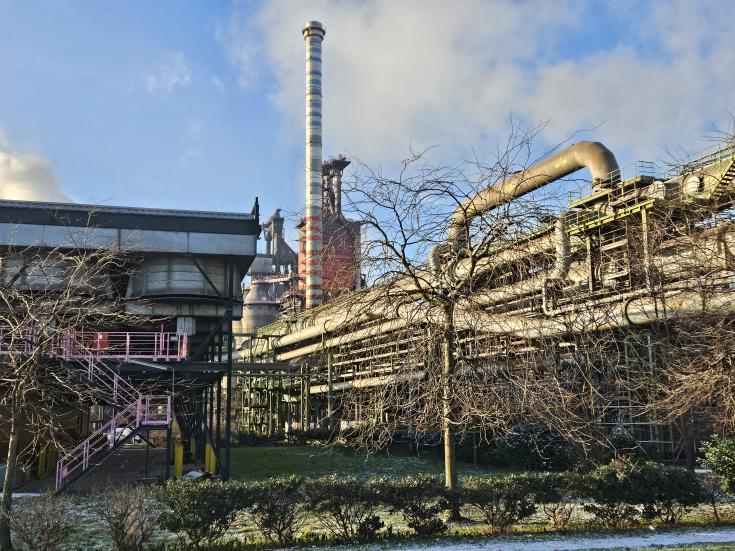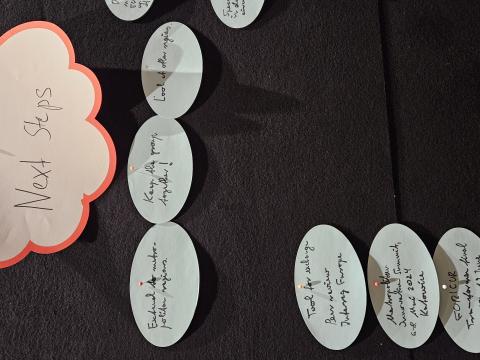Driving Green Change: Insights from Duisburg workshop

On 18 January 2024, Interreg Europe’s Policy Learning Platform was invited to contribute to the international workshop “Green Transformation of Industrial Cities” hosted by the City of Duisburg in North Rhine Westphalia (Germany). The event was jointly organised by Duisburg Business and Innovation (DBI) and the European Institute for Comparative Urban Research (EURICUR), inviting scientists and policy practitioners from across Europe to discuss sustainability pathways for highly industrialised metropoles.
In fact, Duisburg is known for the biggest steel plant in Europe and the continent’s largest inland harbour. Consequently, the step-by-step decarbonization of Duisburg’s steel production at the ThyssenKrupp plant through billion-euro investments in green hydrogen represents an unprecedented milestone in the city’s efforts to leave behind their emission-driven past.
As stressed by the responsible Vice-Mayor, Michael Rüscher, the city has created an integrated “compass” as the local policy framework for an economically, environmentally and socially sustainable future. To tackle the multidimensional challenges of the transition process, cities and regions need to function as arenas of open and collaborative innovation, fostering networks and clusters for industrial urban symbiosis and material streams.
In the fishbowl discussions following the event plenary, Thorsten Kohlisch, Lead Manager of the Policy Learning Platform, provided insights into the experience of Interreg Europe’s policy learning community on regional governance, process orchestration and the principle of responsibility-sharing for stakeholder coordination. In the same vein, the TRANSFORMER project co-financed by Horizon Europe brought the concept of Transition Super-Labs (TSLs) into the debate. As explained by the project leader and Interreg Europe community member Dmitri Domanski from Business Metropole Rhein-Ruhr, TSLs aim at creating living labs and co-creative collaboration formats at regional scale, actively involving all relevant public, private, scientific and societal actors in the development of cross-sectoral solutions.
The fruitful and focused discussions during the day served as an example for the value of interregional exchanges, thus triggering the interest of the participating cities, regions and universities in learning more about how Interreg Europe’s Policy Learning Platform can support their future collaboration for green transformation.
